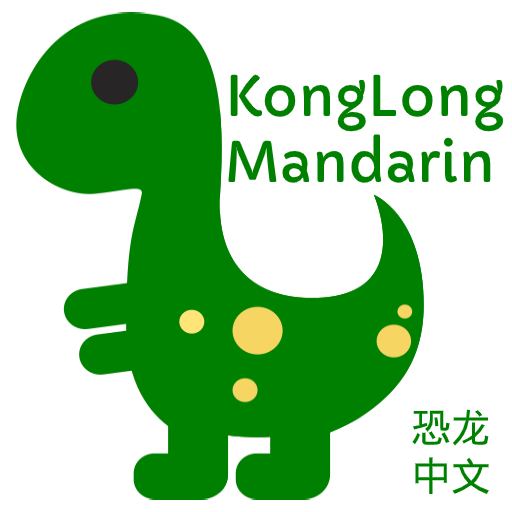Mandarin transcript (in pinyin and characters) for Peppa Pig S01E09 “Daddy Loses his Glasses” Part 2:
- yǒudeshíhòu zhū bàba huì zhǎobúdào tā de yǎnjìng
- pèiqí, qiáozhì, nǐmen jiàndào guò zhū bàba de yǎnjìng le ma
- tā dàochù zhǎo dōu zhǎobúdào
- méiyǒu, māma
- pèiqí hé qiáozhì bùzhīdào bàba de yǎnjìng zài nǎlǐ
- ò, zāole, bàba méiyǒu yǎnjìng jiù shénme dōu kànbùdào
- zhè huì nòng dé tā hěn jiāozào de
- 有的时候猪爸爸会找不到他的眼镜
- 佩奇,乔治 你们见到过猪爸爸的眼镜了吗
- 他到处找都找不到
- 没有,妈妈
- 佩奇和乔治不知道爸爸的眼镜在哪里
- 哦,糟了,爸爸没有眼镜就什么都看不到
- 这会弄得他很焦躁的
The video player above requires Javascript to run properly. You can binge-watch the full video on the official Peppa Pig Chinese Dub Youtube channel.
Show Notes for Learn Chinese with Peppa Pig Season 01 Episode 09 Part 2
yǒudeshíhòu zhū bàba huì zhǎobúdào tā de yǎnjìng
有的时候猪爸爸会找不到他的眼镜
Sometimes, Daddy Pig can’t find his glasses.
- 有的时候 = yǒudeshíhòu, sometimes, occasionally. Useful phrase.
- 猪爸爸 = zhū bàba, Daddy Pig
- 会 = huì, indicating possibility. This is similar to 会累 from S01E03 Part 5.
- 找 = zhǎo, look for
- 找不到 = zhǎobúdào, can’t find.
- 他的 = tā de, his
- 眼镜 = yǎnjìng, glasses. Pay attention to the tone because 眼睛 = yǎnjīng, with a different tone on jing, means eyes. They are often used in related contexts.
pèiqí, qiáozhì nǐmen jiàndào guò zhū bàba de yǎnjìng le ma
佩奇,乔治,你们见到过猪爸爸的眼镜了吗
Peppa, George, did you see Daddy Pig’s classes?
- 佩奇 =pèiqí, Peppa Pig
- 乔治 = qiáozhì, George Pig
- 你们 = nǐmen, you
- 见到过… 了吗 = jiàndào guò … le ma, have you seen …? you can also use 看 = Kàn instead of 见
tā dàochù zhǎo dōu zhǎobúdào
他到处找都找不到
He has looked everywhere but still can’t find them.
- 到处 = dàochù, everywhere
- 都 = dōu, all
- If you omit the first 找, the sentence 到处都找不到 will still mean the same thing.
- 到处都 is a pretty useful phrase in general. For example,
- 到处都看了= dàochù dōu kànle, have seen everywhere.
- 到处都吃遍了 = dàochù dōu chī biànle, have eaten things everywhere (say if you go to a city and tried all the restaurants all over the places).
- 到处都问了 = dàochù dōu wènle, have asked everywhere.
méiyǒu, māma
没有,妈妈
No, mom.
- I discussed 没有 in my post on how to say No in Chinese.
pèiqí hé qiáozhì bùzhīdào bàba de yǎnjìng zài nǎlǐ
佩奇和乔治不知道爸爸的眼镜在哪里
Peppa and George don’t know where Daddy’s glasses are.
- 和 = hé, and, together with
- 不知道 = bùzhīdào, don’t know
- 在哪里 = zài nǎlǐ, where. In this sentence, 在 is similar to “on” in “on the table”, or “at” in “at home”.
ò, zāole, bàba méiyǒu yǎnjìng jiù shénme dōu kànbùdào
哦,糟了,爸爸没有眼镜就什么都看不到
Oh, no, without glasses dad can’t see anything.
- 哦,糟了 = ò, zāole, oh no. Similar to 哦,我的天哪, the Oh in particular isn’t commonly used in exclamatory expression. 糟了 by itself can be used in spoken Chinese.
- 没有 = méiyǒu, don’t have
- 就 = jiù, then
- 什么 = shénme, anything
- 什么都 = shénme dōu, a set phrase for all the things, everything, anything. Examples: 什么都没了 = shénme dōu méiliǎo, all is lost. 中了彩票就什么都有了= zhòngle cǎipiào jiù shénme dōu yǒule, if you win the lottery you’d acquire everything.
- 看不到 = kànbùdào, can’t see. There are some similar phrases such as 听不到 = can’t hear it, 做不到 , = can’t do it.
zhè huì nòng dé tā hěn jiāozào de
这会弄得他很焦躁的
This will make him anxious.
- 这 = zhè, this
- 会 = huì, will or would
- 弄得 = nòng dé, to make somebody feel something, or to turn something into a certain state. Highly colloquial. 她把房间弄得很乱 = tā bǎ fángjiān nòng dé hěn luàn, she made the room messy
- 很 = hěn, very
- 焦躁 = jiāozào, this is likely a direct translation from anxious. But it’s not commonly used in spoken Chinese. I would have used 着急 = zhāojíjí, or even shorter, 急 = jí. The whole sentence could be re-written as 这会让他很急 = zhè huì ràng tā hěn zhāojí
